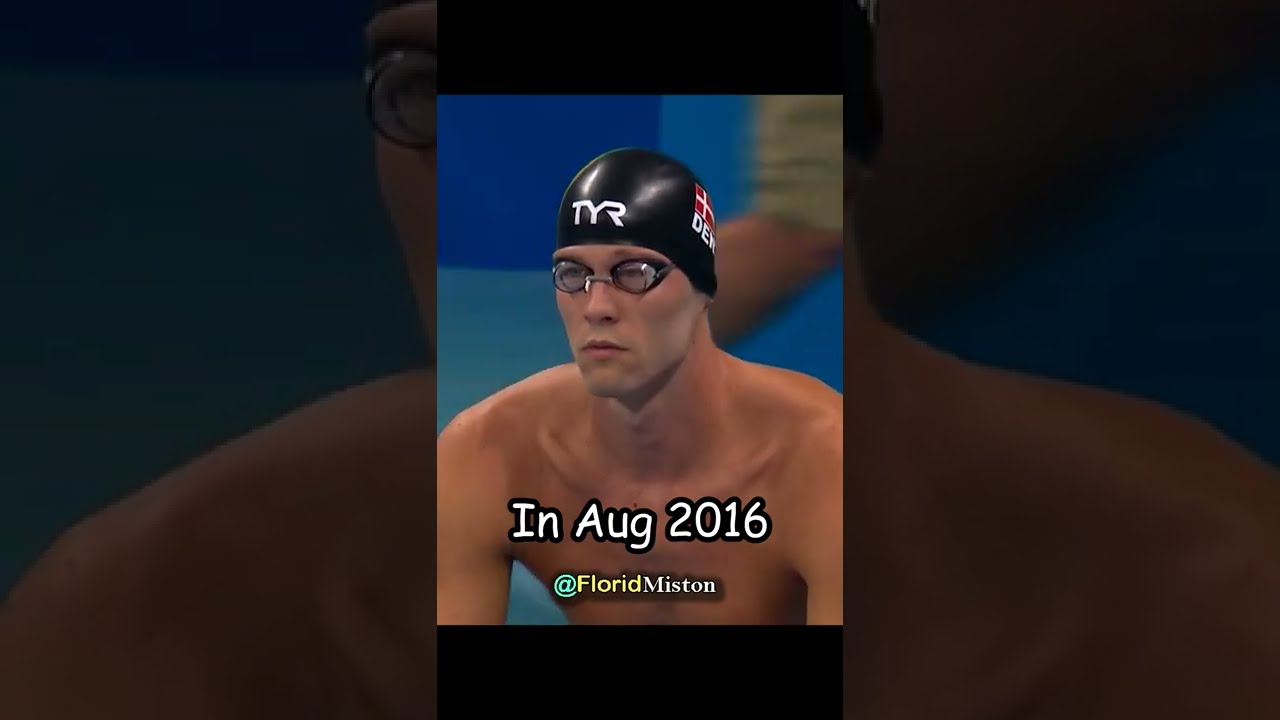Who Got Disqualified In Olympics Swimming: A Comprehensive Overview

The Olympic Games are a pinnacle of athletic achievement, showcasing the world's best swimmers competing for glory. However, disqualifications can dramatically alter the landscape of these prestigious events. In this article, we will explore the instances of disqualification in Olympic swimming, shedding light on the reasons behind these decisions and their impact on athletes and the competition as a whole.
Swimming, as one of the most watched events during the Olympics, has seen its fair share of controversies, particularly surrounding disqualifications. Understanding who got disqualified in Olympics swimming not only highlights the challenges athletes face but also emphasizes the importance of adhering to the rules set forth by governing bodies. This comprehensive guide will delve into notable disqualifications, the rules that govern swimming competitions, and the broader implications for the athletes involved.
As we navigate through the history and specifics of disqualifications in Olympic swimming, we aim to provide a balanced perspective, supported by credible data and expert opinions. This article is designed to be informative for swimming enthusiasts, athletes, and anyone interested in the dynamics of Olympic sports.
Table of Contents
History of Disqualifications in Olympic Swimming
Disqualifications in Olympic swimming have a long history, often reflecting the strict adherence to rules and regulations that govern the sport. The first recorded disqualification in Olympic swimming occurred in the early 20th century, with subsequent events showcasing a growing complexity in the rules as the sport evolved.
Over the decades, various factors have contributed to disqualifications, including false starts, stroke violations, and illegal turns. As the sport has progressed, so too have the guidelines that dictate fair play, ensuring that all athletes compete on a level playing field.
Notable Disqualifications in Olympic Swimming
Throughout Olympic history, several disqualifications have stood out due to their impact on the events and the athletes involved. Here are a few noteworthy examples:
- 1988 Seoul Olympics: American swimmer Matt Biondi was disqualified in the 100-meter freestyle final due to a false start, a decision that shocked fans and altered the outcome of the event.
- 2000 Sydney Olympics: Australian swimmer Ian Thorpe faced disqualification in the relay event after a teammate's false start, showcasing how team dynamics can influence individual outcomes.
- 2016 Rio Olympics: The disqualification of Chinese swimmer Sun Yang for a doping violation raised significant concerns about drug use in competitive swimming.
Rules Governing Swimming Competitions
The rules governing swimming competitions are established by the International Swimming Federation (FINA). These regulations cover various aspects of the sport, including:
Key Rules and Regulations
- False Starts: Any swimmer who jumps the starting gun will be disqualified.
- Stroke Violations: Swimmers must perform strokes according to specific techniques, such as the correct breathing and arm movements.
- Turn Violations: Swimmers must execute turns and finishes in accordance with FINA guidelines.
Impacts of Disqualification on Athletes
Disqualifications can have profound effects on athletes, both emotionally and professionally. The implications include:
- Mental Health: The psychological impact of disqualification can lead to stress, anxiety, and a loss of confidence among athletes.
- Reputation Damage: Disqualifications can tarnish an athlete's reputation, affecting sponsorship opportunities and future competitions.
- Financial Consequences: Loss of potential earnings and endorsements due to disqualification can be significant for professional athletes.
Case Studies of Disqualified Swimmers
Examining individual cases of disqualified swimmers provides insight into the reasons behind their disqualification and its repercussions.
Case Study: Matt Biondi
Matt Biondi's disqualification in the 1988 Seoul Olympics serves as a critical example. His false start not only cost him a medal but also highlighted the intense pressure athletes face during high-stakes competitions.
Case Study: Sun Yang
Sun Yang's doping violation in the 2016 Rio Olympics underscores the serious consequences of drug use in sports. His disqualification led to significant media coverage and discussions around athlete integrity.
Preventing Disqualification: Best Practices for Athletes
To minimize the risk of disqualification, athletes can adopt several best practices:
- Understand the Rules: Athletes should have a thorough understanding of the rules governing their events.
- Practice Consistently: Regular training can help athletes perform techniques correctly and avoid violations.
- Mental Preparation: Mental coaching can assist athletes in managing stress and maintaining focus during competitions.
Conclusion
Disqualifications in Olympic swimming serve as poignant reminders of the importance of adhering to rules and regulations. The instances we have discussed highlight not only the challenges athletes face but also the broader implications for the sport. As we continue to celebrate the achievements of swimmers worldwide, it is crucial to acknowledge the lessons learned from disqualifications and strive for a fair and just competitive environment.
We encourage readers to share their thoughts on disqualifications in swimming and engage in discussions surrounding the topic. Your insights can contribute to a deeper understanding of the sport.
Resources and Further Reading
For those interested in diving deeper into the topic of disqualifications in swimming, here are some trusted resources:
You Also Like
Soft Pickleball Shoes: The Ultimate Guide For Comfort And PerformanceValerie Vaughn Nude
Euphoria Nude: Exploring The Controversial Aesthetic Of The Hit Series
Ultimate Guide To Ear Ear Cleaner: Safe And Effective Ear Cleaning Solutions
Is There A Post Credit Scene In Deadpool Wolverine?
Article Recommendations
ncG1vNJzZmiZlKK2r3rBqKmdnaKhrq%2Bw0mespGaTpLpwtsimpLJtX6y1sHnGqKtmnJmovraty6Kdop2UYravec6lsKaomZjAbrXNZqqwoZ2itq%2BzjaGrpqQ%3D